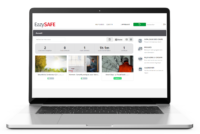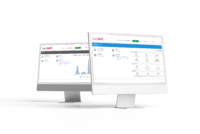Rebuilding the Workplace

LISA QUINN O’FLAHERTY
Solicitor
Fitzsimons Redmond
Never before have we had such a blank slate to shape our workplaces to suit the needs of all stakeholders. Office workers have kept businesses afloat over the last year and a half from their own homes. They have proven that the model where everybody works from a central office is both unnecessary and outdated. Workers have shown that targets can be met while working from home and that productivity expectations can be exceeded while avoiding the commute to the office.
According to the Second National Remote Working Survey by NUI Galway in April 2021, only five per cent of employees are looking forward to getting back to the office full-time. Thirty-two per cent would like to remain working from home on a daily basis. The remaining majority at sixty-three per cent would like a hybrid system, varying from working remotely several times a week to several times a month.
Creating a more flexible workplace creates opportunities for diversity. New opportunities arise for people who traditionally faced barriers to entry to the workplace. People with disabilities may have been prevented from working due to inaccessible transport or the additional exertion of a commute on top of a workday. Parents and carers battling rigid childcare collection times, and long commutes adding to their workday could benefit from remote working.
Giving options as to where workers fulfil their role allows all workers to maximise their quality of life and gain more quality time each day. This increases worker wellbeing. Eighty-six per cent of workers reported that life is made easier by remote work. With permanent flexibility, employees who struggled with the urban housing crisis will benefit from the option of purchasing a property in a more affordable area. Proximity to work no longer has to be the main criteria when searching for a home.

Employers can benefit from employees working wholly or partly from home, by needing less investment in office space, and by lower overheads. They gain the option of implementing hot desk systems in a smaller space. Workers can use hot desks and meeting rooms when in the office, but there need not be a workstation for each individual employee.
Employers also benefit by attracting candidates from a larger pool of diverse talent by offering flexibility of workplace, and are viewed overall as a desirable employer. It is arguable that flexibility can give smaller business an edge in recruiting, but I think it is more likely that the past year and a half has created an expectation from employees of flexible working. In fact, the NUIG study shows that 9 per cent of workers have already moved home as a result of the ability to work remotely, with almost 47 per cent of workers considering a move.
When introducing a permanent, flexible model of work it is important for employers to take some steps to ensure they are acting in a manner that protects employees and protects themselves from risk. By risk, I mean civil claims arising in personal injury or under employment legislation, and prosecution by the Health and Safety Authority. I also mean the risk of lost productivity, unhappy workers, and risk to personal data.
A first step is to review policies. A remote working policy may need to be introduced, and other policies such as the data protection policy or the computer usage policy may need to be amended to reflect the new reality. It is possible that these things were overlooked or hastily completed during the Covid-19 crisis; but as things revert to normal, all policies should be reviewed.
Robust communication channels need to be established so as to avoid grievances and bullying complaints that might arise from workers feeling excluded or isolated, or arising from inter-personal issues. A communications policy should be considered, together with training on bullying and harassment and effective communications in the workplace.
An important thing to consider is working hours and the recording of working time; while it may suit both to work unusual hours, neither party can opt out of the obligations of the Organisation of Working Time Act. It provides for a cap on weekly working hours and that particular breaks between working hours. It also obliges employers to keep a record of the hours worked by each employee; if the work system does not automatically record this, employers should ensure that employees are completing timesheets.
Other factors to consider are tax implications that arise if the employee is not working in Ireland and any investment which may be required to ensure that workers have the appropriate tools to do their job. Employers must also have a policy in place to deal with situations where the workplace proposed by the employee is not appropriate, such as where there is insufficient privacy to deal with confidential matters.
Importantly, employers must note that when the worker is working remotely, their home becomes their workplace in terms of health and safety legislation. The Health, Safety and Welfare at Work Act 2005 remains equally applicable to employers when the employee works remotely.
The employer’s duties under that Act are to:
- Do all that is reasonably practical to ensure the safety, health and welfare of workers
- Manage and conduct work activities and behaviours so as to avoid a risk to workers
- Plan and maintain a safe system of work
- Plan and maintain a safe workplace and safe equipment
- Prevent known risks
- Provide personal protective equipment where appropriate
- Provide accessible training on health and safety
EazySAFE assists employers in fulfilling their statutory obligations by offering Home Workstation and VDU Assessments and training on all aspects of workplace health and safety, as well as support in creating and updating the Safety Statement, and Handbook. A Health and Safety Assessment will identify the specific risks for the workplace and offers solutions in mitigation. The Safety Statement and Handbooks are required documentation, that allow all workers to know what is expected of them. It should be provided when on-boarding and accessible at all times.
When workers return to the office, whether full-time or not, additional duties fall on employers in respect of taking precautions for protecting against Covid-19. Before any workers return, an assessment should be completed, mitigation steps taken, and training offered to ensure the office remains a safe place of work.
EazySAFE can work with you to help design a safe and flexible workplace, that will meet the needs of both employers and workers.
For EHS Support, please get in touch.

Discover our Safety Training Platform
Train your employees anytime, anywhere with our environmental, health, safety and wellness training platform.

TAILORED TRAINING
Discover our safety training courses and ehs onboardings, which can be customised and offered in several languages.

SAFETY MANAGEMENT
Ensure the distribution of your safety policy by training your permanent, temporary or seasonal staff.

GLOBAL MONITORING
Simplify the management of your safety policy thanks to the numerous dashboards and training reports.
